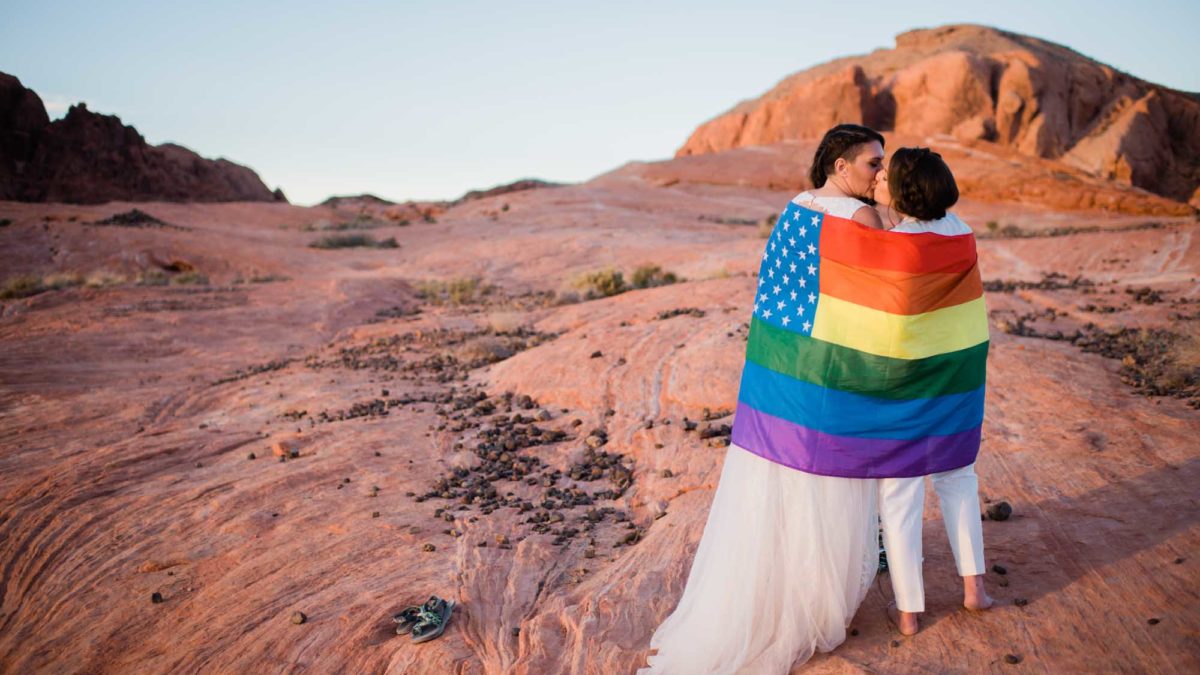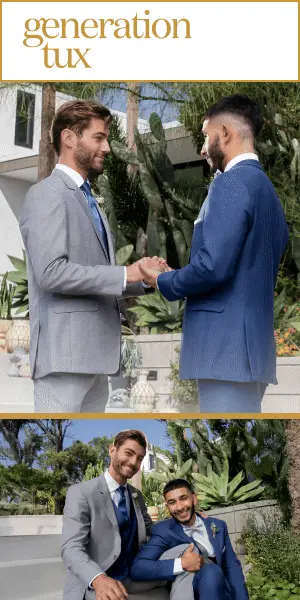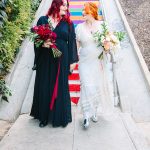There are so many wonderful things about planning an LGBTQ+ wedding. For one, the inability to adhere to gender-based traditions is an opportunity for endless creativity and personalization. There is also, of course, the sheer excitement of getting ready to marry the love of your life.
Unfortunately, LGBTQ+ wedding planning can also come with a unique set of challenges. To make planning as joyful and seamless as possible for LGBTQ+ couples, it’s helpful for vendors, loved ones, and anyone else involved in the wedding to be aware of some of the most common challenges LGBTQ+ couples encounter.
1. Vetting Vendors For Inclusivity
All couples are looking for the perfect vendors, those they easily connect with and who understand their vision for their special day. LGBTQ+ couples, however, experience the added burden of having to determine if a vendor will respect their identities.
Some vendors make this easy by utilizing gender-neutral language on their website and intake forms, displaying LGBTQ+ couples in their marketing materials, earning their LGBTQ+ Inclusive Certification from Equally Wed Pro and providing statements of inclusivity on their websites. Others aren’t so clear, however, and it is often up to the couple to decide if they want to meet a vendor whose values aren’t transparent and risk the trauma of being discriminated against or disrespected.
Even vendors who are accepting overall but make incorrect assumptions about pronouns, titles, etc. can create stressful situations.
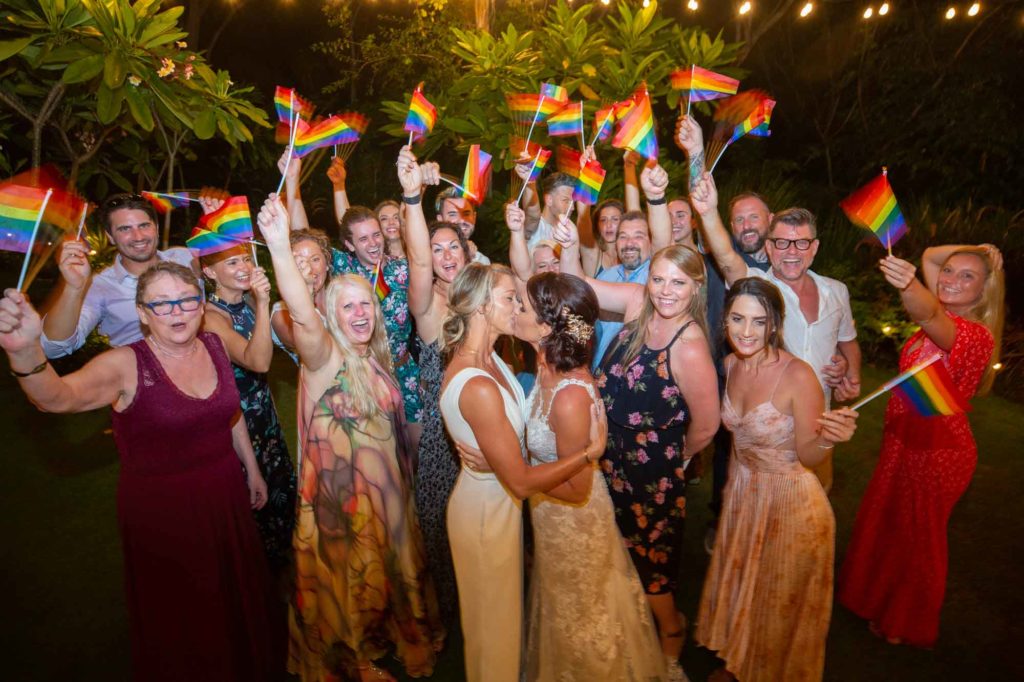
2. Gown/Suit Shopping
Many LGBTQ+ people don’t subscribe to gender norms when it comes to clothing, and it can be nearly impossible to find a non-gendered wedding shop. As such, LGBTQ+ people often have to explain to salespeople that they don’t plan to wear what society might expect them to—and they also must deal with the stress of whether or not they’ll be judged while shopping. LGBTQ+ people may also face pressure from family members to dress a certain way for their wedding.
3. Acceptance From Friends, Family and Coworkers
When you’re planning a wedding, all you want to do is talk about it. It’s an exciting time after all, but for LGBTQ+ people, talking about it can be difficult if there are friends, family or coworkers in their lives who are not accepting.
For many LGBTQ+ couples, even creating a guest list can cause added stress, as they must decide whether to invite certain family members who have not shown acceptance. There is also the fear and pain of knowing that some people they love may refuse to attend.
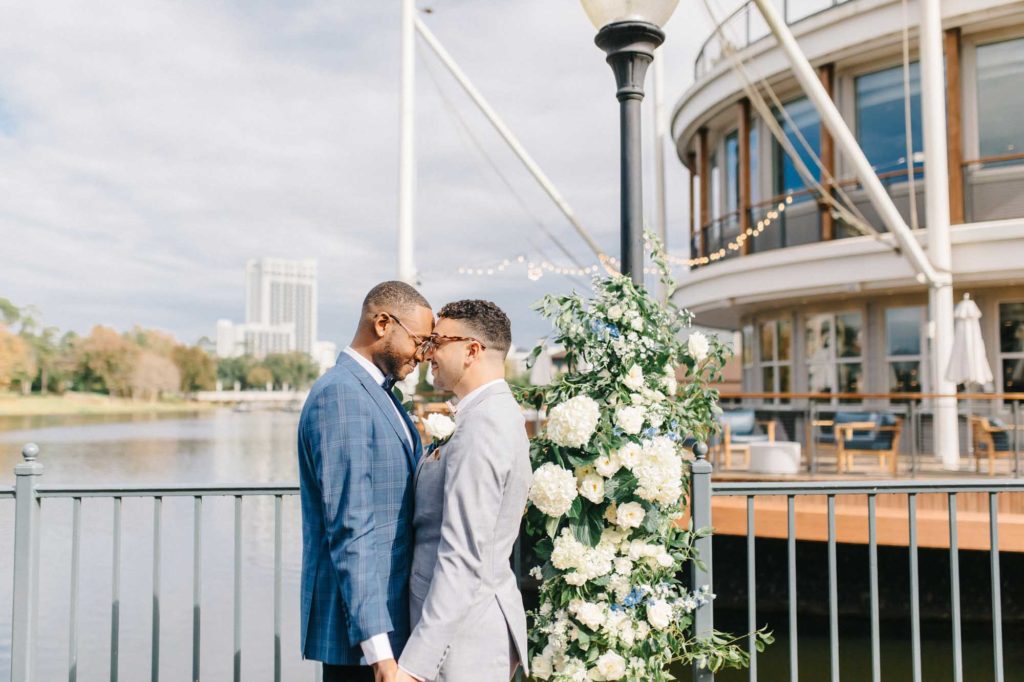
4. Music
It can be difficult for LGBTQ+ couples to find music they connect to—especially for their ceremony and first dance. While the number of out LGBTQ+ music artists is certainly growing, the majority of love songs still seem to focus on love between a man and a woman.
5. Choosing a Safe Honeymoon Destination
LGBTQ+ couples don’t have the luxury of choosing a honeymoon destination that simply seems beautiful and fun. If they are leaving the country, especially, they also have to consider the culture of LGBTQ+ acceptance, and whether or not there are laws in place that will protect them or persecute them. There is nothing worse than being on your honeymoon and having to pretend you’re just friends or siblings, so LGBTQ+ couples are often limited to locations where they know it will be safe to be out and proud.
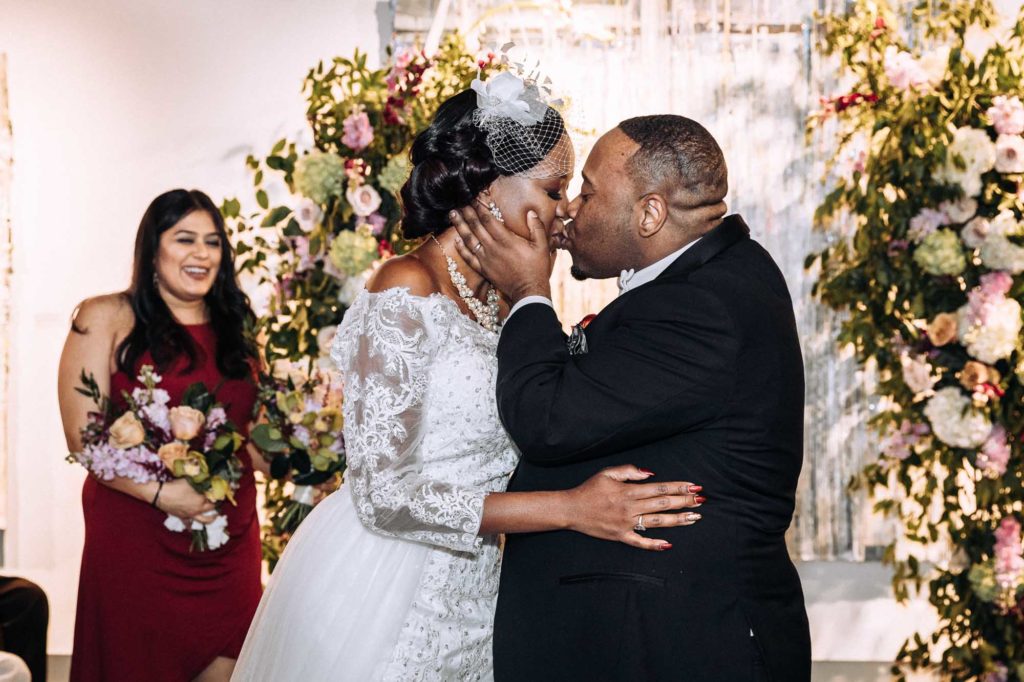
6. Navigating Gender and Heteronormativity
The wedding industry remains exceedingly heteronormative and cisgender-focused, with the majority of traditions centered around roles that the “bride” does and things the “groom” does. LGBTQ+ couples must navigate this world in which many people will likely ask them who will play the “man’s” role and who will play the “woman’s” role. Many vendors, friends and family may try to “fit” LGBTQ+ couples into a traditional wedding structure, rather than help them create their own personalized traditions.
Even more, such a cisgender-focused industry means many transgender and nonbinary people are forced to face the trauma of being misgendered when meeting with vendors, salespeople and the like.
What now?
The wedding industry certainly has a lot of work to do, but there are also tons of LGBTQ+ inclusive vendors out there who are prepared to help LGBTQ+ couples navigate all of these challenges. To start, check out Equally Wed’s list of LGBTQ+-inclusive vendors, who can be found all over the country and world.
Molly Sprayregen
MOST VIEWED STORIES
- The Rise of Weddings With Long-Lasting Investments: Benefits Beyond The Big Day
- How to have a green wedding that Mother Earth would attend
- Simplify wedding communication with digital engagement announcements and thank you cards
- A Spiritual and Earthy Elopement at Lassen Volcanic National Park
- Food Trucks, Craft Booze and Cultural Fusions: How New England Weddings Are Changing the Game



